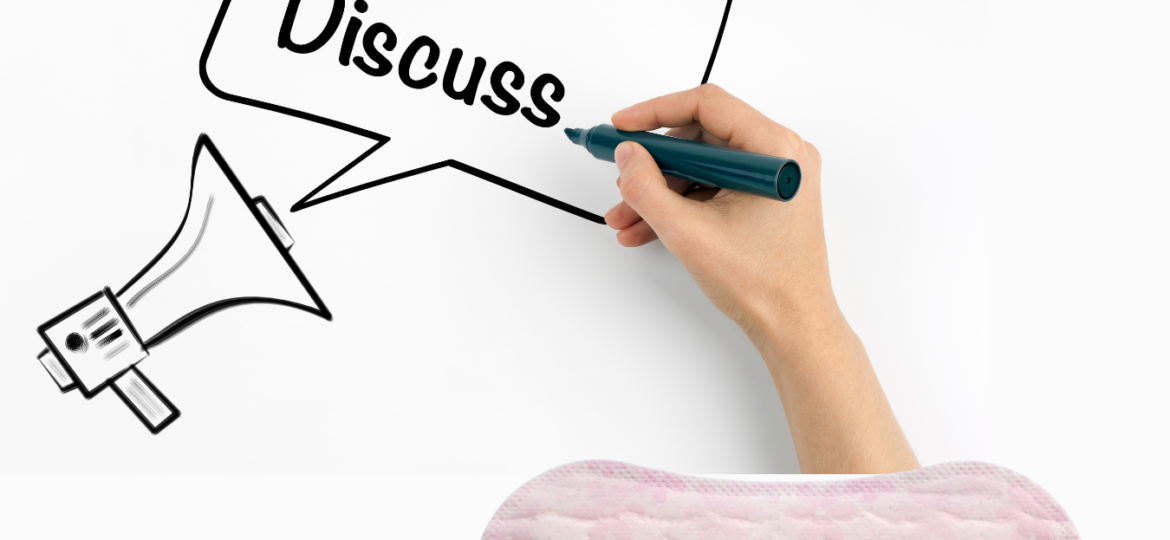Period Poverty is a problem that has been left unreached for many years. The period is a natural call for women that can’t decline. During periods, women go through mood swings, headaches, bloating, and the worst part of the period is period cramps. Additionally, there are problems related to the non-availability of sanitary pads, due to which women indulge themselves in unhygienic menstrual practices that ultimately lead to menstrual disorders. Due to the taboos related to periods, women zip their mouths to talk about menstrual problems, as talking about periods is uncommon. Talking about periods issues in public creates embarrassment. With the fear of embarrassment, women lack period knowledge because nobody wants to talk about it. It is essential to break the taboo related to periods, and women should feel confident to talk about various issues they face during periods.
To change people’s perspective towards periods, Ms. Oarabile Baisi, a co-founder of Rolink Investment (Pty) Ltd association with the World Humanitarian Support Foundation, conducted a webinar on November 22, 2021. In this webinar, Ms. Oarabile Baisi focused on ending period poverty and breaking the taboos associated with periods.
In the Webinar:
World Humanitarian Support Foundation partnered with Rolink Investment (Pty) Ltd through the “Her Golden Voice” initiative intending to empower women with knowledge and awareness on period poverty, period health, and hygiene with the help of modern and innovative technologies.
While introducing period poverty, she stated that period poverty is a combination of lack of period products, lack of period education, and lack of sanitation facilities. Women who lack period knowledge will automatically be unaware of period products and good menstrual hygiene. She stated that according to Plan International UK (2018), period poverty is made of the ‘toxic trio’ that comprises of:
- Cost of Period Products- that is non-affordability of period products due to high prices
- Lack of Period Education
- Shame, Stigma, and Taboo related to menstruation.
While addressing the background of period poverty; she stated that two out of ten girls in Sub-Saharan Africa miss school during periods according to global estimation. Girls who cannot afford period products don’t have a proper substitute. It prevents girls from going to school. Due to period poverty, girls cannot express themselves freely when they tease after seeing period stain on their dress. As there are many questions surrounding girls related to periods and there is no one with whom she can share; it ultimately leads to mental problems that include anxiety, depression, and distress; that is caused due to period shame and stigma.
Continue Reading:
In the webinar, she stated the adverse effects of period poverty. In this, she said an increased health risk in women due to unaffordability or unavailability of period products. Women who can’t afford to buy period products use handmade pads that are usually unclean and unhygienic to use during periods. Also, period poverty increases property destruction because girls who cannot afford to buy sanitary pads use mattresses in boarding schools and toilet paper in schools, hostels, libraries, and community halls.
One negative effect of period poverty harms the environment is improper menstrual waste management due to shame, stigma, and taboos. It breaks the chain of period education due to which men and boys are still not aware of periods and maintains the stigma and taboo related to periods. If women continue to keep the period silent and distribute the period product secretly, it will resist the adoption of new and innovative period product infrastructure.
She also shares measures to address period poverty in which she highlight that period products must be distribute with dignity. Period products should be made available at affordable prices. Schools and society must emphasize period education and must support with regards to periods as a biological topic. One must also include proper menstrual waste disposal in period education.
Wrapping up:
Concluding the topic, people need to understand that Periods are natural. Women need to come out from the stigma and taboo related to periods. They should break the silence and talk about periods openly. We women can bring a change when we treat positively. Women and men should gain period education to support women to break the period taboos. It will make our society adopt new and modern methods of distributing sanitary napkins, such as installing Sanitary Napkin Vending Machine and Sanitary Napkin Incinerators to dispose of the used sanitary pads.
Our Website: http://www.streesanman.com

 Sanitary napkin Vending Machine
Sanitary napkin Vending Machine Smokeless Incinerator
Smokeless Incinerator Outdoor Air purifier
Outdoor Air purifier